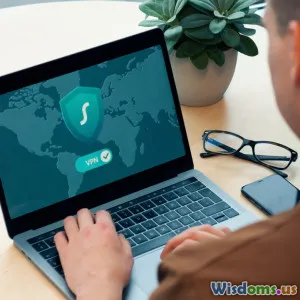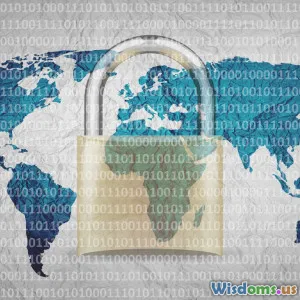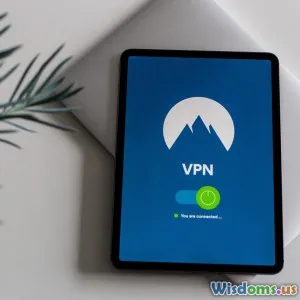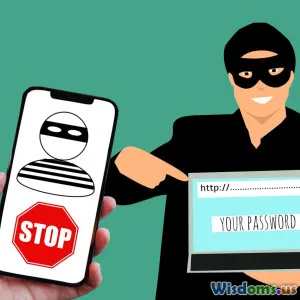
VPN Myths Busted What You Need to Know for True Online Privacy
9 min read Uncover the truth behind VPN myths and learn what truly ensures your online privacy and security. (0 Reviews)
VPN Myths Busted: What You Need to Know for True Online Privacy
Introduction
In an increasingly digital world, the importance of safeguarding your online privacy cannot be overstated. Virtual Private Networks (VPNs) have surged in popularity, promising enhanced security, anonymity, and freedom on the internet. However, countless myths and misunderstandings about VPNs swirl around — from exaggerated capabilities to mistaken assumptions about their protection levels.
Are VPNs truly a silver bullet for online privacy? Can they guarantee complete anonymity and security against cyber threats? If you’ve ever paused to wonder what a VPN actually does and what it doesn’t, you're in the right place.
This comprehensive article delves beneath the surface to bust common VPN myths. We’ll explain the real benefits and limitations of VPN technology, give evidence-backed insights, and guide you in making smarter choices for your online security.
Myth 1: "A VPN Makes You Completely Anonymous Online"
One of the most rampant misconceptions is that VPNs turn you into an invisible ghost on the internet. But in reality, VPNs do not offer total anonymity.
What VPNs Actually Do
A VPN creates an encrypted tunnel between your device and the VPN server, masking your real IP address and encrypting your internet traffic. This stops your Internet Service Provider (ISP), public Wi-Fi snoopers, or government agencies from directly observing your browsing activities.
What VPNs Don’t Hide
- VPN providers can see your traffic: Unless you choose a VPN that has a strict no-log policy and has been independently audited, your VPN provider might retain metadata about your connection.
- Online services can track you: Websites use cookies, browser fingerprinting, and other tracking mechanisms which a VPN does not inherently block.
Real-World Insights
In 2021, the popular VPN provider Hotspot Shield was scrutinized for injecting tracking JavaScript into browsers, despite claiming to offer privacy. This incident emphasizes that while a VPN changes your IP and encrypts traffic, your ultimate privacy depends heavily on the provider's trustworthiness and other security measures you take.
Myth 2: "Using Free VPNs is Just as Secure as Paid Ones"
If you’re trying to save money, the temptation to use a free VPN service might be strong. After all, aren’t all VPNs the same?
The Reality Behind Free VPNs
Many free VPNs generate revenue by collecting and selling user data or injecting ads. A 2020 study by CSIRO found that over 80% of free VPN apps on Google Play engaged in user tracking practices.
Performance & Security Trade-offs
Free VPNs often have:
- Bandwidth caps limiting actual usability
- Fewer server options, causing slower speeds
- Outdated encryption standards or weak protocols
Case Studies
Take the example of VPN provider Hola, which in the past converted users’ devices into exit nodes for its paid users’ traffic, potentially implicating innocent users in questionable activities.
Bottom Line
Paid VPNs invest in security infrastructure, maintain no-log policies, and regularly undergo third-party audits to assure privacy. While not flawless, paid VPNs significantly outperform their free counterparts.
Myth 3: "A VPN Protects You From All Online Threats"
It’s easy to assume that once connected to a VPN, you're safe from malware, phishing, or hacking. However, VPNs primarily safeguard your data transmission but don’t scan for malicious content.
What VPNs Protect
- Encryption of data in transit to prevent eavesdropping
- Concealing your IP to reduce location tracking and targeted attacks
What VPNs Don’t Protect
- Viruses and malware: You still need antivirus software and safe browsing practices.
- Phishing attacks: VPNs do not identify or block phishing links.
- Compromised accounts: VPNs won’t stop criminals from accessing your accounts if passwords are weak or stolen.
Expert Insight
As cybersecurity expert Graham Cluley points out: "VPNs are a layer of protection, not a silver bullet. You still need strong passwords, software updates, and awareness to stay truly safe online."
Myth 4: "VPNs Slow Down Your Internet Significantly"
While a VPN encrypts and routes your traffic through remote servers, many users worry about a dramatic drop in speed.
What Affects VPN Speed?
- Distance to VPN server: Greater physical distance means higher latency.
- Server load: Overcrowded servers can become bottlenecks.
- Encryption protocol: Some protocols like WireGuard and OpenVPN are faster while others are slower.
Fact Check
Modern VPNs optimize speed efficiently. Independent tests from Ookla Speed Test show that top-tier VPNs can impact speeds by less than 10% in ideal conditions.
Recommendations
Choosing a VPN provider with:
- Large global server networks
- Optimized protocols like WireGuard
- Servers near your geographic location
...can ensure minimal speed degradation.
Myth 5: "A VPN Lets You Bypass Any Geo-Restriction Reliably"
While VPNs are often touted as great tools to access geo-blocked content (like region-locked streaming services), their ability here is limited.
Reality Check
- Services like Netflix, BBC iPlayer, and Disney+ actively block IP addresses linked to VPNs.
- The success rate of bypassing geo-blocks fluctuates as streaming platforms continuously update detection techniques.
Real Example
In 2022, Netflix cracked down on VPN usage harder than ever, blacklisting many popular VPN IPs. Users reported intermittency and inconsistent access despite VPN connections.
What You Can Do
Look for VPNs that invest in real-time IP rotation, stealth servers, and dedicated streaming features if bypassing geo-restrictions is your priority.
What Does True Online Privacy Require?
Knowing what misunderstanding to avoid leads to better security strategies:
Combine Security Tools
- Use a reputable VPN
- Employ strong, unique passwords managed by a password manager
- Install antivirus and anti-malware solutions
- Enable two-factor authentication on key accounts
Maintain Good Digital Hygiene
- Avoid clicking unknown links
- Be cautious with app permissions
- Regularly update your devices and applications
Trust and Verify VPN Providers
Choose VPN services that publish transparency reports, undergo audits, and have clear, user-friendly privacy policies.
Conclusion
VPNs are powerful tools that bolster your online privacy by encrypting internet traffic and masking your IP address. However, they have limitations and cannot by themselves guarantee complete anonymity or immunity against cyber threats.
By debunking common myths around VPNs, you can avoid misplaced trust and make smarter decisions in protecting your digital footprint. Invest in reputable VPNs, combine them with other cybersecurity measures, and stay informed to navigate the complex world of online privacy safely and confidently.
Remember, true privacy is layered — VPNs are one vital layer among many.
References
- "CSIRO Study on VPN Privacy," 2020
- "The Reality of VPN Speed," Ookla Speed Test, 2023
- Statements by cybersecurity expert Graham Cluley (https://www.grahamcluley.com/)
- Hotspot Shield privacy incident, 2021
- Netflix VPN enforcement reports, 2022
Rate the Post
User Reviews
Popular Posts




















